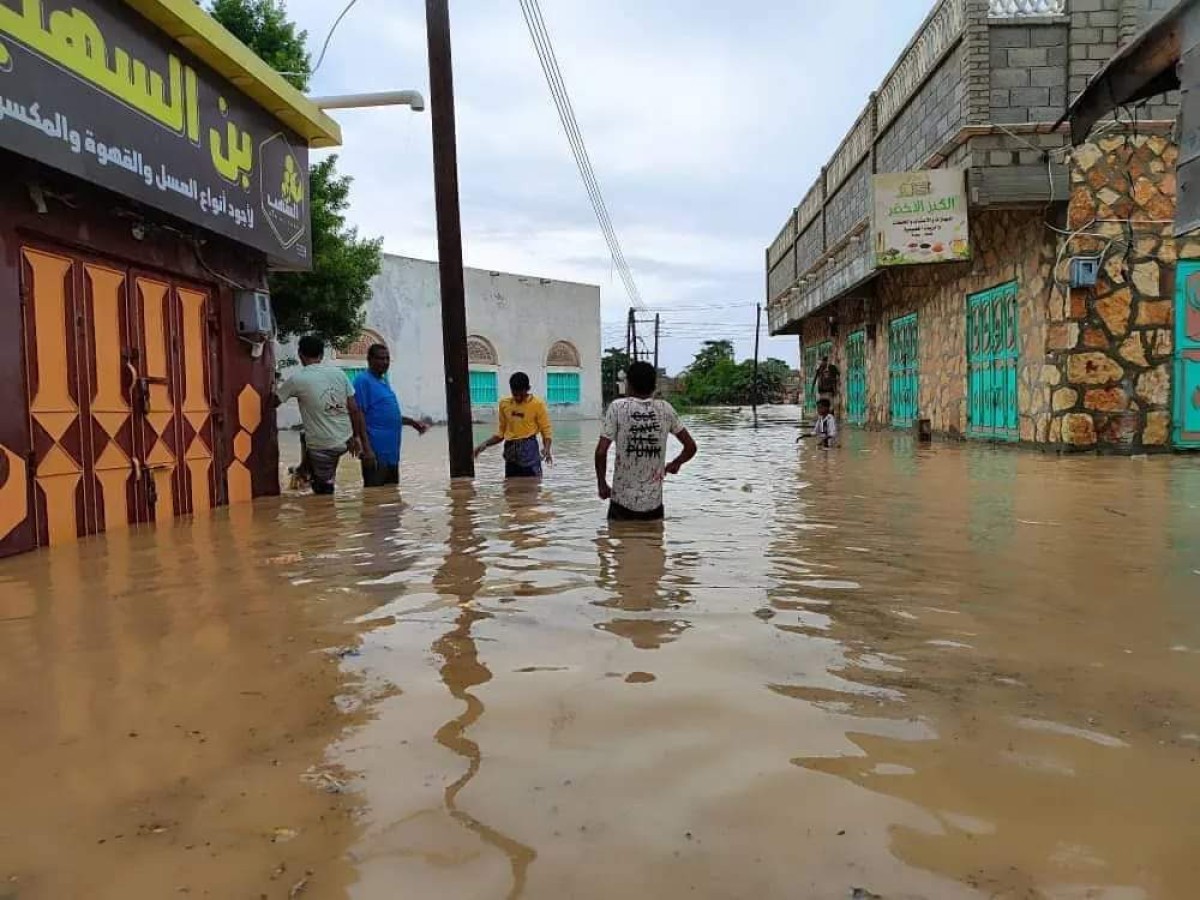More than 10,000 families were affected by the tropical storm in Al-Mahra, Hadramaut, and Socotra


A recent UN report stated that more than 10,000 families were affected as a result of the tropical storm (Tej), which struck the governorates of Socotra, Al-Mahra, and Hadramaut last week.
The United Nations Office for the Coordination of Humanitarian Affairs (UNOCHA) said in its latest report, issued on Sunday: “10,451 families were affected in the governorates of Socotra, Hadramaut, and Al-Mahra, as a result of the effects of Cyclone Tej, which struck the eastern coast of Yemen on October 23 and 24, followed by heavy rains.” And torrential rains in some areas.”
The report added that the majority of affected families were in Al-Mahra Governorate, accounting for 68% of the total affected people, where the hurricane caused an estimated 7,100 families, followed by Hadhramaut Governorate with 2,682 families, and 669 families in Socotra.
He pointed out that the floods and heavy rains accompanying the hurricane led to the destruction of many homes and infrastructure and the displacement of families, specifically in the Al-Raydah and Qusayar Districts in Hadhramaut, in the areas of the Huswain and Al-Ghaydah Districts in Al-Mahra Governorate, and in the districts of Socotra Governorate (Hadibu, Qalansia and Abdul-Kuri).
p>The report explained that heavy rains and strong winds caused the destruction of a number of displacement sites in Hadramaut, in addition to affecting the agricultural and fishing sectors in Al-Mahra.
The United Nations Office for the Coordination of Humanitarian Affairs confirmed that the effects of the hurricane focused on infrastructure and not the loss of life, due to “precautionary measures taken by local authorities, including closing schools and some roads, early evacuation of families in high-risk areas, and warnings.” "The early stages conducted by these authorities in coordination with partners."
The report stated that humanitarian partners continue to assess the effects of Cyclone Tej in the most affected areas of the three governorates and expand the scope of responses to affected families, while giving priority to providing basic needs, especially food and shelter.